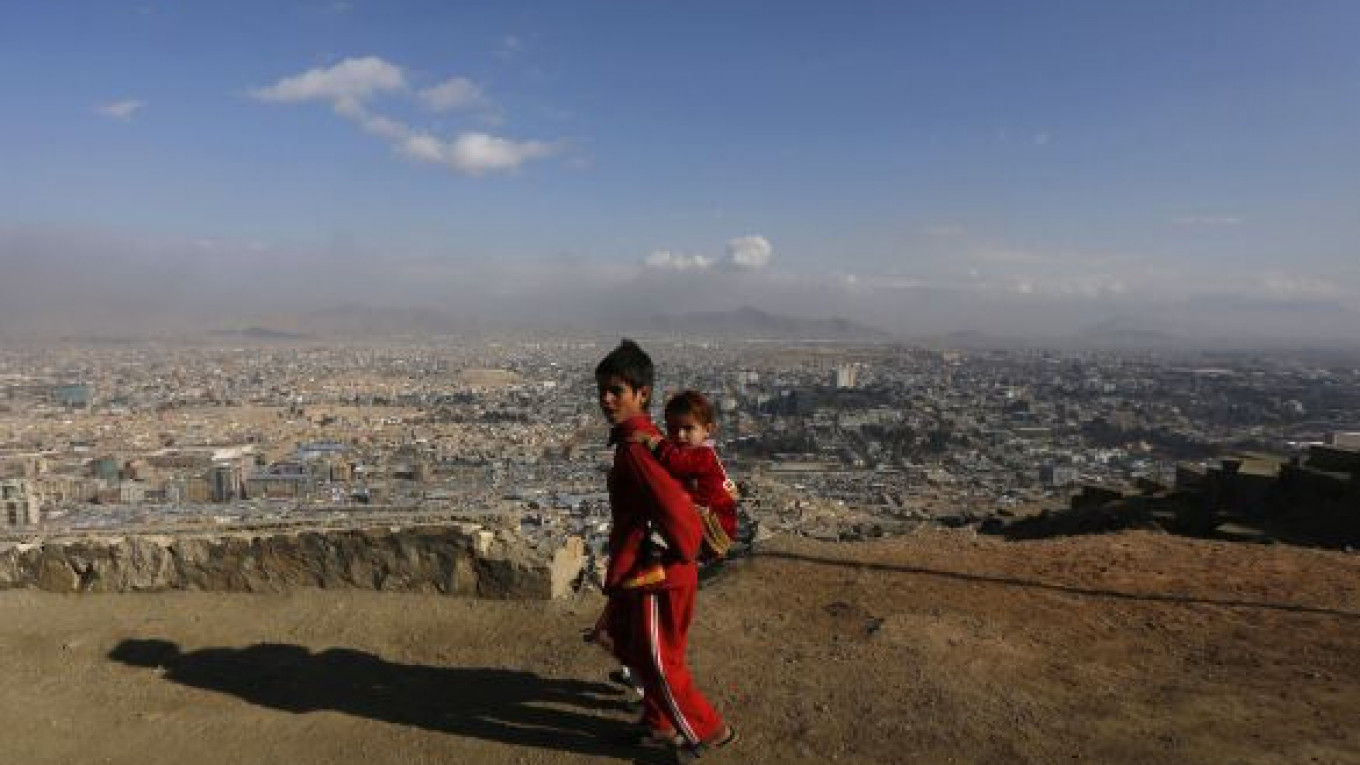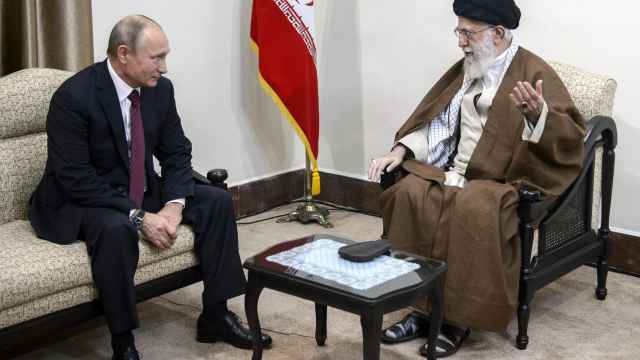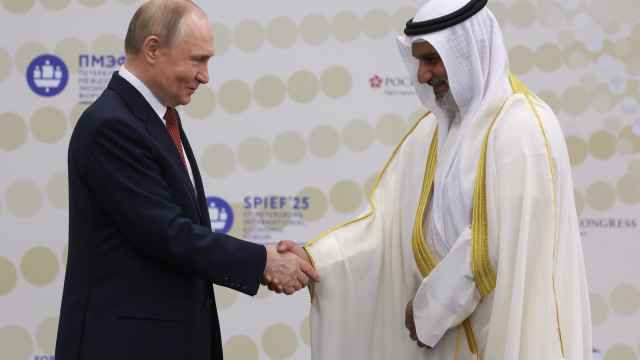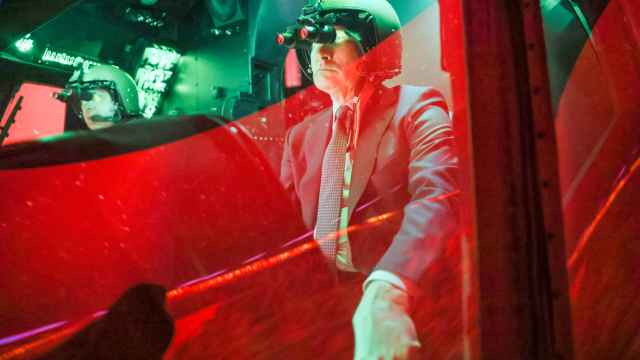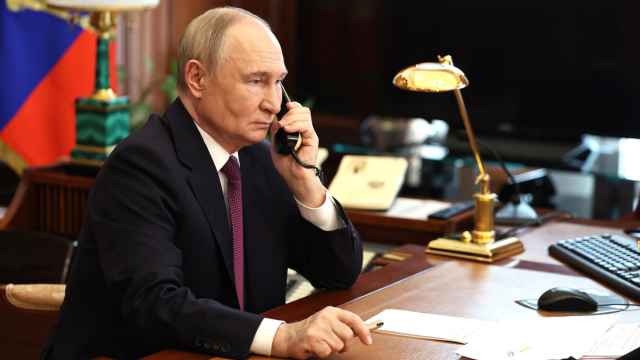Five months after Moscow finalized an agreement with NATO to use Ulyanovsk's airport for transporting military equipment from Afghanistan, not a single flight has been carried out.
National media have speculated that money is an issue and that Volga-Dnepr, the freight company that would handle the flights from the Volga Federal District hub, is demanding more payment than NATO countries are willing to spend.
But a senior representative of the alliance said Tuesday that although to his knowledge no shipping contract had been signed, both sides were testing how the hub could work in practice.
"A dry run has been completed, and a real test to ship containers from Latvia to Afghanistan and back via Ulyanovsk is expected for the next days," said Robert Pszczel, head of NATO's Information Office in Moscow.
Pszczel would not comment on why it was taking so long for the agreement to lead to actual results. He merely said "mundane commercial considerations" play a role.
Representatives of Volga-Dnepr did not respond to calls and e-mailed requests for comment Tuesday.
But analysts said it would be strange if a deal foundered because of Volga-Dnepr, as the air cargo holding has handled NATO shipments in the past.
Roman Gusarov, an aviation expert who is editor of Avia.ru, said both sides have a good track record of mutually satisfactory cooperation.
"They are an industry leader, and I just cannot think that they would not offer marketlike conditions," he said about Volga-Dnepr.
Founded in the early 1990s in Ulyanovsk by Alexei Isaikin, a former Soviet Air Force officer, the company has grown into a global air freight conglomerate, but its main assets remain 10 Antonov An-124 airlift aircraft. The Soviet-built jets can carry up to 140 tons, as much as a Boeing 747, but can handle much bulkier loads because of their wider body.
However, the plans are politically sensitive, having triggered angry opposition protests earlier this year. Communists and left-wing groups have accused the Kremlin of selling out to the West by allowing NATO to operate in the country's strategic heartland. Ulyanovsk is Lenin's birthplace.
Government officials have stated adamantly that the so-called transit center is far from being a military base and that no NATO personnel would work in Ulyanovsk.
NATO officials have praised the July agreement as a positive example of cooperation with Russia.
But Ruslan Pukhov, a defense analyst at the Center for Analysis of Strategies and Technologies, suggested that the deal faced significant practical and political hurdles.
He said the Ulyanovsk hub is both a political PR project and a business idea for Volga-Dnepr.
"Once both sides attempt to get it to work, they encounter problems," he said. He added that the project suffered from "political unpredictability."
Alexander Konovalov, of the Institute for Strategic Assessment, pointed to the U.S. Senate's recent passage of the Magnitsky Act and suggested that Moscow was uneasy about reports of successful cooperation with NATO in a phase of renewed tension with the United States.
"Putin's team is afraid this might affect stability," he said.
But NATO officials say they need Ulyanovsk as an additional hub to fulfill its promises to withdraw most of its more than 100,000 troops from Afghanistan by 2014.
"It is good to have the option," Pszczel said.
The task includes bringing more than 70,000 vehicles and 120,000 containers back to the 50 countries that contribute to the International Security Assistance Force, the NATO-led security mission in Afghanistan.
While most of the equipment was shipped there initially via sea, the precarious security situation in Pakistan, a necessary transit country to landlocked Afghanistan, has made NATO look for alternative routes.
The Northern Distribution Network runs through Russia as well as Tajikistan, Uzbekistan and Kyrgyzstan, three Central Asian nations that have allowed NATO to transport equipment over their territory.
Related articles:
A Message from The Moscow Times:
Dear readers,
We are facing unprecedented challenges. Russia's Prosecutor General's Office has designated The Moscow Times as an "undesirable" organization, criminalizing our work and putting our staff at risk of prosecution. This follows our earlier unjust labeling as a "foreign agent."
These actions are direct attempts to silence independent journalism in Russia. The authorities claim our work "discredits the decisions of the Russian leadership." We see things differently: we strive to provide accurate, unbiased reporting on Russia.
We, the journalists of The Moscow Times, refuse to be silenced. But to continue our work, we need your help.
Your support, no matter how small, makes a world of difference. If you can, please support us monthly starting from just $2. It's quick to set up, and every contribution makes a significant impact.
By supporting The Moscow Times, you're defending open, independent journalism in the face of repression. Thank you for standing with us.
Remind me later.



